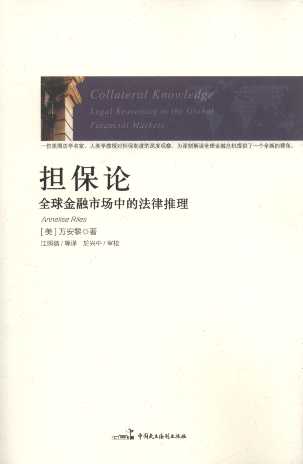July 26, 2013
by ar254@cornell.edu
1 Comment
Last week, I had the opportunity to attend a remarkable meeting of legal experts and members of the general public opposed to Prime Minister Abe’s stated goal of revising Japan’s constitution. The meeting, at Doshisha University, was organized by feminist political theorist Yayo Okano on behalf of the Article 96 Society, a group of prominent legal scholars and political theorists opposed to constitutional revision. Article 96 is the constitutional section that defines the procedures for constitutional amendment.

The issue is Article 9, which states that Japan forever renounces war as a method of conflict resolution. Here is the text:
ARTICLE 9. Aspiring sincerely to an international peace based on justice and order, the Japanese people forever renounce war as a sovereign right of the nation and the threat or use of force as means of settling international disputes. (2) To accomplish the aim of the preceding paragraph, land, sea, and air forces, as well as other war potential, will never be maintained. The right of belligerency of the state will not be recognized.
Nationalist Prime Minister Abe wants to revise Article 9 so that Japan can build a larger standing army and become involved in foreign conflicts, in response to threats from China in particular.
The meeting involved presentations by eight prominent academics and lawyers, each of whom made a different kind of case against constitutional revision. What was so moving about this event however was the audience. Over 500 people were in attendance–virtually every seat in Doshisha University’s largest auditorium was taken and people stood in the staircases and aisles to hear what the speakers had to say. These members of the public moreover were mainly retirees, not young people. Many were very elderly people old enough to remember the horrors of war. They are adamantly opposed to Japan returning to its nationalist past.
The speakers talked about all kinds of dimensions of the issue–from the importance of the Peace Constitution, to Japan’s national image in Asia, to how nationalist arguments that the constitution was imposed on Japan by the American occupation forces and therefore lacks legitimacy is a red herring. Interestingly, two speakers out of eight specifically addressed constitutional reform as a feminist issue. One of these emphasized the importance of peace as a feminist cause. The other emphasized that if you wish to reform something about the constitution, there are many aspects of women’s constitutional rights that still have not been enforced or made into reality. Why not focus on this sort of reform rather than militarism, she argued.
 The lead speaker for the evening, the constitutional law professor Youichi Higuchi of Sophia University, spoke eloquently and passionately about how the real point of all this debate is about the fact that the constitution gives the people power. The government wants to take this power away from you, he said. Don’t be fooled by other side issues. This is about your power. No matter how you got this power (i.e., what the drafting process was), the constitutional reality is that you now have it. And the government wants to take it away.
The lead speaker for the evening, the constitutional law professor Youichi Higuchi of Sophia University, spoke eloquently and passionately about how the real point of all this debate is about the fact that the constitution gives the people power. The government wants to take this power away from you, he said. Don’t be fooled by other side issues. This is about your power. No matter how you got this power (i.e., what the drafting process was), the constitutional reality is that you now have it. And the government wants to take it away.
Professor Higuchi has a point here. Prime Minister Abe has stated clearly that his objective is not just to revise Article 9, but to revise Article 96 to make it easier for his majority party to revise the constitution at will. At the moment, Article 96 requires that a super-majority of two thirds of each house of the Diet approve the amendment followed by at least 51% of the voters in a general plebescite. Prime Minister Abe would like to eliminate the need for a super-majority vote since his party easily holds a majority of seats in both houses.
Having recently heard a brilliant series of lectures by constitutional lawyer Kim Scheppele (Princeton University) about how Hungary moved from democracy to fascism through the skilled deployment of just this sort of legislative politics, I think there is real reason to be concerned about the consequences of any revision to Article 96. This is especially true given Abe’s nationalist politics, his family’s fascist history, and his troubling statements on issues such as the comfort women problem. The experience in Hungary deserves careful analysis in Japan: in Hungary, a leader with similar political leanings as Abe managed to gain control of both houses through a legitimate democratic election. Then he squeaked by with a victory on the same revision to the procedures for constitutional amendment Abe hopes to promulgate,  almost while no one was looking. The next step was easy for him: using his majority in parliament to eliminate virtually all procedures for judicial review of government decisions, and to severely curtail individual rights. The result is fascism, sadly, created through perfectly democratic means.
almost while no one was looking. The next step was easy for him: using his majority in parliament to eliminate virtually all procedures for judicial review of government decisions, and to severely curtail individual rights. The result is fascism, sadly, created through perfectly democratic means.
So I was deeply impressed by the courage and eloquence of these Japanese law professors and members of the public. I hope that legal scholars like myself can support them in any way possible. I also wonder if in Hungary, and now Japan, there is not a cautionary example for the United States as well about the ease with which democracy slips into something far more sinister.






 The lead speaker for the evening, the constitutional law professor
The lead speaker for the evening, the constitutional law professor  almost while no one was looking. The next step was easy for him: using his majority in parliament to eliminate virtually all procedures for judicial review of government decisions, and to severely curtail individual rights. The result is fascism, sadly, created through perfectly democratic means.
almost while no one was looking. The next step was easy for him: using his majority in parliament to eliminate virtually all procedures for judicial review of government decisions, and to severely curtail individual rights. The result is fascism, sadly, created through perfectly democratic means.